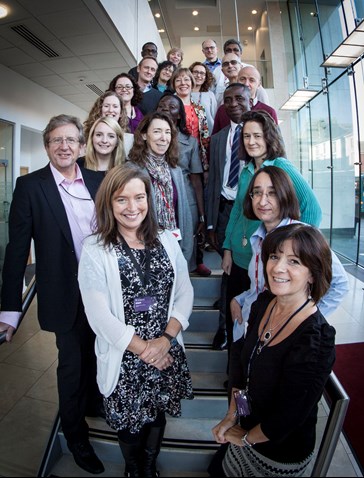Cochrane Infectious Disease Group biannual editors meeting
Thursday, 24 Oct 2013 The current 18 editors of the Cochrane Infectious Disease Group (CIDG) met at Liverpool School of Tropical Medicine (LSTM) today for the start of their biannual meeting. The editors define the Group’s priorities, ensure reviews are of the highest standard and work closely with review teams in the development and completion of each review.
The current 18 editors of the Cochrane Infectious Disease Group (CIDG) met at Liverpool School of Tropical Medicine (LSTM) today for the start of their biannual meeting. The editors define the Group’s priorities, ensure reviews are of the highest standard and work closely with review teams in the development and completion of each review.
"This meeting will review progress to date and establish our strategic priorities in terms of policies and reviews for the coming years", says LSTM Professor Paul Garner, joint Co-ordinating Editor. "We will consider one of the hottest topics which is dealing with competing interest in reviews and consider other important technical and strategic developments within the wider Cochrane Collaboration".
The CIDG prepares systematic reviews on the benefits and harms of healthcare interventions for infectious diseases, particularly malaria, tuberculosis, diarrhoea and tropical diseases. The CIDG editorial base is led by Professor Paul Garner and Dr David Sinclair. The worldwide team of 300 authors from some 40 countries contribute to the preparation of the Cochrane Reviews is managed on a day-to-day basis by the Managing Editor, Anne Marie Stephani. They are supported by an international team of Editors, each with topic or methodological expertise, from India, The Gambia, Uganda, Nigeria, UK, USA, Israel, Switzerland and Australia.
Its scope covers healthcare interventions for communicable diseases. The focus is mainly, but not exclusively, on diseases that affect people in low- and middle-income countries. These diseases include malaria, acute diarrhoea, tuberculosis, helminth infections, scabies and headlice, and other protozoan, bacterial and viral infections that are found predominantly but not exclusively in tropical and subtropical regions of the world.
The CIDG is particularly interested in reviews relevant to the United Nations Sustainable Development Goals in infectious diseases, maternal mortality and child health. Reviews are frequently used by the World Health Organization (WHO) in Guideline Development. For example, in the last few months the WHO used their review in recommending rotavirus vaccine for developing countries, in iron in children in malaria areas, and malaria prophylaxis for children living in areas with seasonal malaria transmission and using rapid diagnostic tests for tuberculosis.
The meeting will last until 25 October.
Tag Cloud
